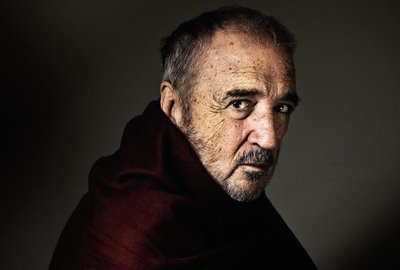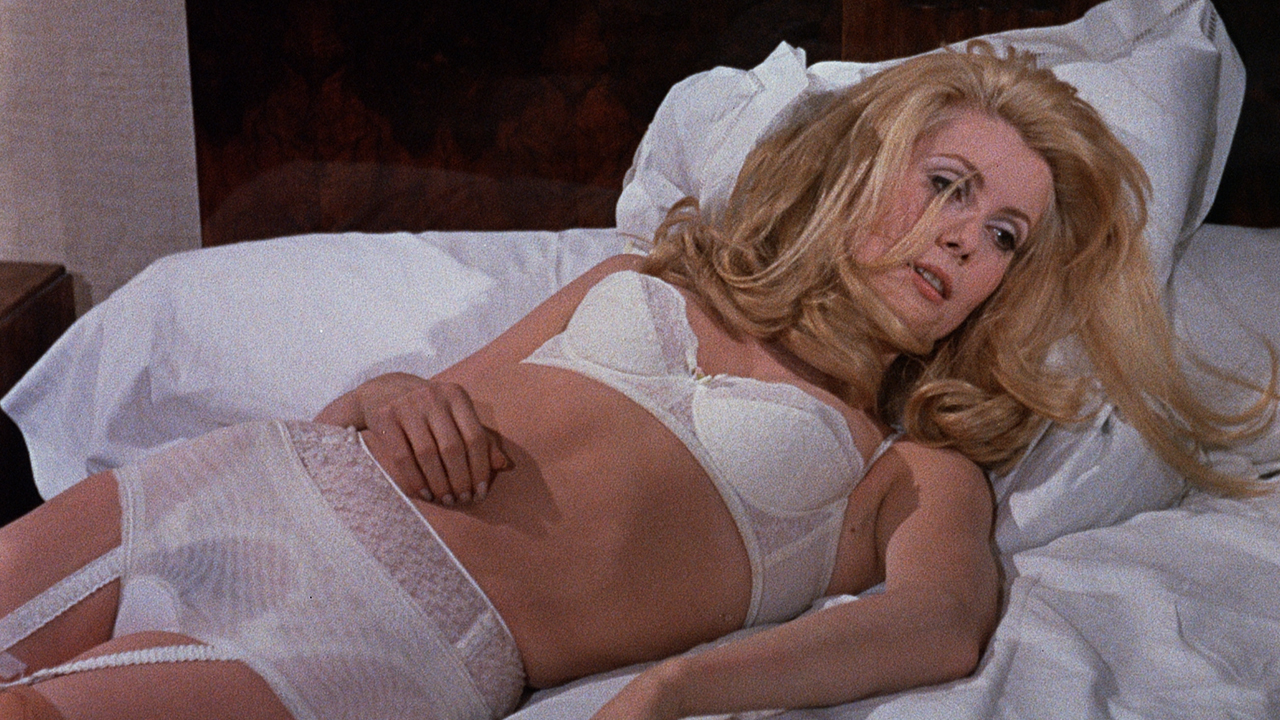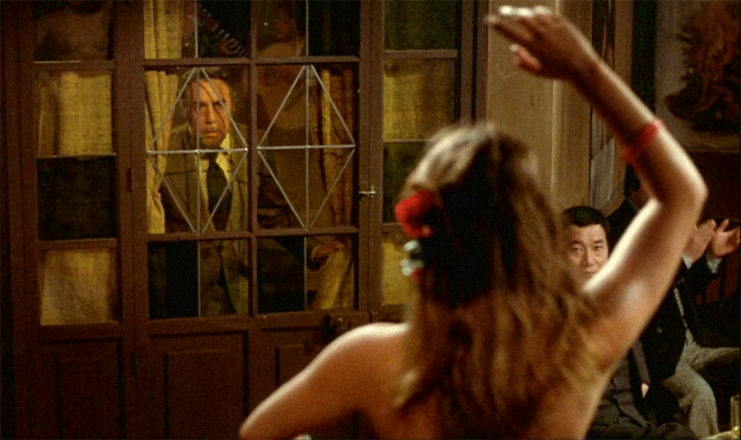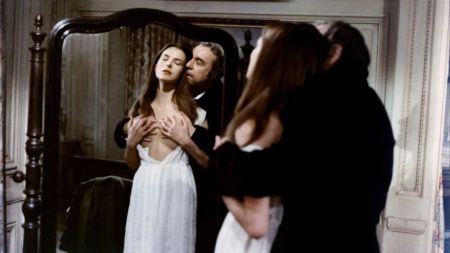The Honoraries: Jean-Claude Carrière, Part 1
 Tuesday, November 4, 2014 at 6:32PM
Tuesday, November 4, 2014 at 6:32PM Our 2014 Honorary Oscar tribute series continues with a two-part look at the long fascinating career of Jean-Claude Carrière. Here's Amir with Part One.

Here at The Film Experience, we are normally opposed to the idea of past winners receiving honorary Oscars. This, after all, is an honor bestowed on a recipient whose career not only merits the attention, but also lacks it. When there are so many giants of the medium that the Academy hasn't recognized, why double dip with already rewarded names? But there is something incredibly satisfying about seeing three time nominee and one time winner, Jean-Claude Carrière, receive an honorary Oscar this year. His is one of the most fascinating careers in film history, and one that has lasted six decades and spanned several countries and languages.
Carrière started as a novelist, his first work published in 1957, five years prior to winning an Oscar in the best short film category for Heaureux Anniversaire. In the intervening fifty-three years between his two golden statues, he's worked with filmmakers as varied as Jean-Luc Godard, Andrzej Wajda, Louis Malle, Jonathan Glazer and, most recently, Abbas Kiarostami who penned him a short but memorable role in Certified Copy.
His most fruitful collaboration, one that still arguably defines his career still today, was cultivated in the 1960s. [More...]

When Luis Buñuel asked producer Serge Silberman to find him a young French writer with whom he could collaborate on an adaptation of Diary of a Chambermaid, he was introduced to several screenwriters at the 1963 Cannes Film Festival. Carrière was the one who hit it off and went on to co-write the film with Buñuel. They partnered up together five more times after that: Belle de Jour, The Milky Way, Discreet Charm of the Bourgeoisie, The Phantom of Liberty and the surrealist master's final film, That Obscure Object of Desire. Quite a streak!
The second and fourth of those collaborations are the films most frequently discussed today among Bunuel's masterpieces, and for obvious reasons: the former gave platform to an iconic, career-defining performance to one of the world's biggest screen stars in Catherine Deneuve; the latter remains one of the most polished examples of Bunuel's brand of ordered chaos and a deliciously off-kilter winner of the best foreign language film Oscar. Carrière and Buñuel replicated a similar structure to Discreet Charm in The Phantom of Liberty by telling each other their dreams every morning, shaping the film's episodic narrative in the process.

That type of friendly collaboration happened quite frequently. Carrière once estimated that they must have shared at least two thousand meals together over the years and countless other conversations, continuing all the way up to Buñuel's death, which left their seventh film, A Sumptuous Ceremony, unfinished. Still, much as one regrets the films that could have been had Buñuel's ill health not ended his career, their final collaboration is quite a high note to end on.
That Obscure Object of Desire is the pair's best film and possibly the best work of their respective careers. A relatively straightforward film by their measures, it tells the story of Mathieu, a wealthy Frenchman played by another frequent collaborator in Fernando Rey, who becomes infatuated with Conchita, an elusive, young Spanish woman. Mathieu narrates the story of their turbulent relationship to fellow passengers on a first class ride between Paris and Seville.
Buñuel and Carrière had discussed using two actresses to portray one character before the film but had eventually settled on Maria Schneider for the role of Conchita. Shooting began but a few days and a few alleged on set problems with Schneider later, they dropped her and went back to their outlandish original idea, casting Carole Bouquet and Angela Moreno in the role. The decision proves crucial to the success of the film. The two actresses don't just look different but act as though they aren't even playing the same role, thus embodying different facets of a character whose complexity and irreverence befuddles Mathieu. The youthful combination of innocence, submission and fiery sexuality takes new shapes as Conchita's physical appearance changes.

Mathieu cannot decode her character. He is at times empowered by her and at other times completely humiliated, embraced as much as ignored, invited as much as rejected. He is a man whose alpha status is threatened, but his unpreparedness for this shift in power means he's unable to prevent himself from lashing out. When he seeks (and receives) affirmation from his travel companions that he was right to viciously beat Conchita for refusing to have sex with him, the woman appears at his cabin and dumps a bucket of cold water on Mathieu's head, figuratively castrating him.
Set to the backdrop of increasing terrorist activity in Europe, Mathieu's paranoia about his sense of self extends beyond his inability to understand the woman of his dreams and, more generally, a shift in sexual culture. Buñuel captures these conflicting dynamics with the intelligence and precision that typifies his work and in the process confounds his audience as much as Mathieu. That all these ideas come together so seamlessly to create a timeless commentary on the clash of the old order with the modern world is no surprise: this is the work of two artists who had come to a perfect understanding without compromising each other's wild creativity, working together in complete harmony. One, a filmmaker who remained exuberant and incisive, and never lost his touch until his death; the other, a writer whose work had matured and reached its formal and thematic peak.
PART 2 - Post Buñuel coming tomorrow
Previously in The Honoraries: Maureen O'Hara, Hayao Miyazaki, and Harry Belafonte



Reader Comments (10)
"That Obscure Object of Desire" I probably watched in my late teens, probably 15 years ago, and while I have lately felt the need to revisit movies I watched during that time, both to give the ones I wasn't necessarily frond of the benefit of the doubt and also to just rewatch the ones that impressed me for whatever the reason might have been, I don't feel much compelled to revisit that one in part because I remember it well enough, but mostly because I felt the idea wore thin after a while to me, and I needed the rest of the elements in the movie to stand on their own, and I don't believe they did back then, allowing for the fact that I may have been mistaken or my impressions were dictated by the present me, at that time, which is many times the way we perceive movies and art in general, always filtered by the present us. Buñuel is one of my favorite artists ever and I find it peculiar that we haven't had many surrealistic directors in movies. I feel his influence can be very prominently seen in cinema and TV mostly aslittle touches of oddity here and there, but I would love to have the opportunity as an spectator to frequently see current works that fully embrace surrealism and play with it in different ways, with their personal styles.
i'm interested that Amir wrote about this one in particular because it's the one I haven't seen of their collaborations. Belle de Jour is one of my all time favorite movies but i also love DISCREET CHARM ... although maybe i'd love it even more now because i saw it when i was younger and i'm betting i might understand some of it better now.
Mr. Goodbar & Nat - I alternate between Los Olvidados and Obscure Object as my favourite Bunuel films, though I love Viridiana, Belle de Jour and Discreet Charm immensely. But precisely because I feel no one ever talks about this one anymore, I wanted to focus on it. It's quite underdiscussed (if not underrated).
I believe this ("cet obscur...") and "viridiana" are my favorites from buñuel.
Thank you for celebrating Buñuel, by the way. My favorite of his is The Exterminating Angel. I recently went to a double-feature screening of Simon of the Desert and The Exterminating Angel and it was quite the experience. Simon is so modern in its humor and has a great ending while Angel on the big screen felt even more potent than I expected! Belle de Jour was probably my introduction to perversion in my teens. It was so tastefully done, though, that I was more fascinated than aroused by it. I love Deneuve in that and think she is even stronger in Tristana, in a more demanding role.
Or should I say Carrière's partnership with Buñuel….
Carriere is just one of my favourite people in the world.
I was actually a bit disappointed by That Obscure Object (since I emphatically adore Bunuel's other films from that period).
Like Mr. Goodbar, I watched it in my late teens, but I'm actually very tempted to revisit it now.
I have only seen about half a dozen Buñuel films (primarily from among his late period) and got a lot out of all of them, but I think That Obscure Object of Desire is the one that has impressed me the most. I think the idea of using two actresses for the same part works very well indeed - it's amazing how easy it is to accept it. Indeed, imagining the film with only one actress playing the role makes the film seem so much more straightforward and, well, ordinary. And Fernando Rey is exquisite. I also liked that the style is so 'plain', as it were; again, imagine the film with a more heightened style and it becomes somewhat ludicrous. And the way Buñuel and Carrière weave in the terrorists through the background of the film is important to the main theme: what is more important, more vital, in our lives - our own personal relationships or the unrest in the wider world? And to what extent are they linked? I've seen this film a few times and it retained its richness on repeat viewings for me.
I need to see The Discreet Charm again - I don't think I 'got' it when I first saw it, and, like Nathaniel, I suspect I'd get more out of it seeing it now.
The sheer freewheelingness of The Phantom of Liberty is terrifying!
Thanks for this celebration of Carrière's body of work He has written a lot of acclaimed work - much of which I have yet to see.
This series is one of the reasons I love this site and return continually.
My lover at the time didn't realize the character was being played by two actresses. He was color blind so maybe he also had some face recognition problem but I think it was due to the magnificence of the movie.
We should not forget «The Devil is a Woman» and Marlene the eternal – at her most beguiling Spanish self!